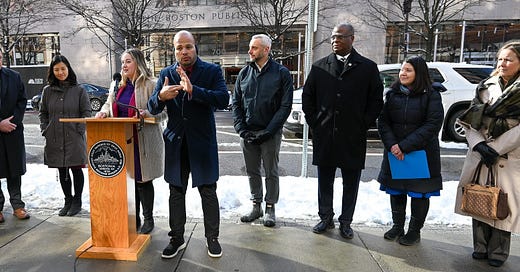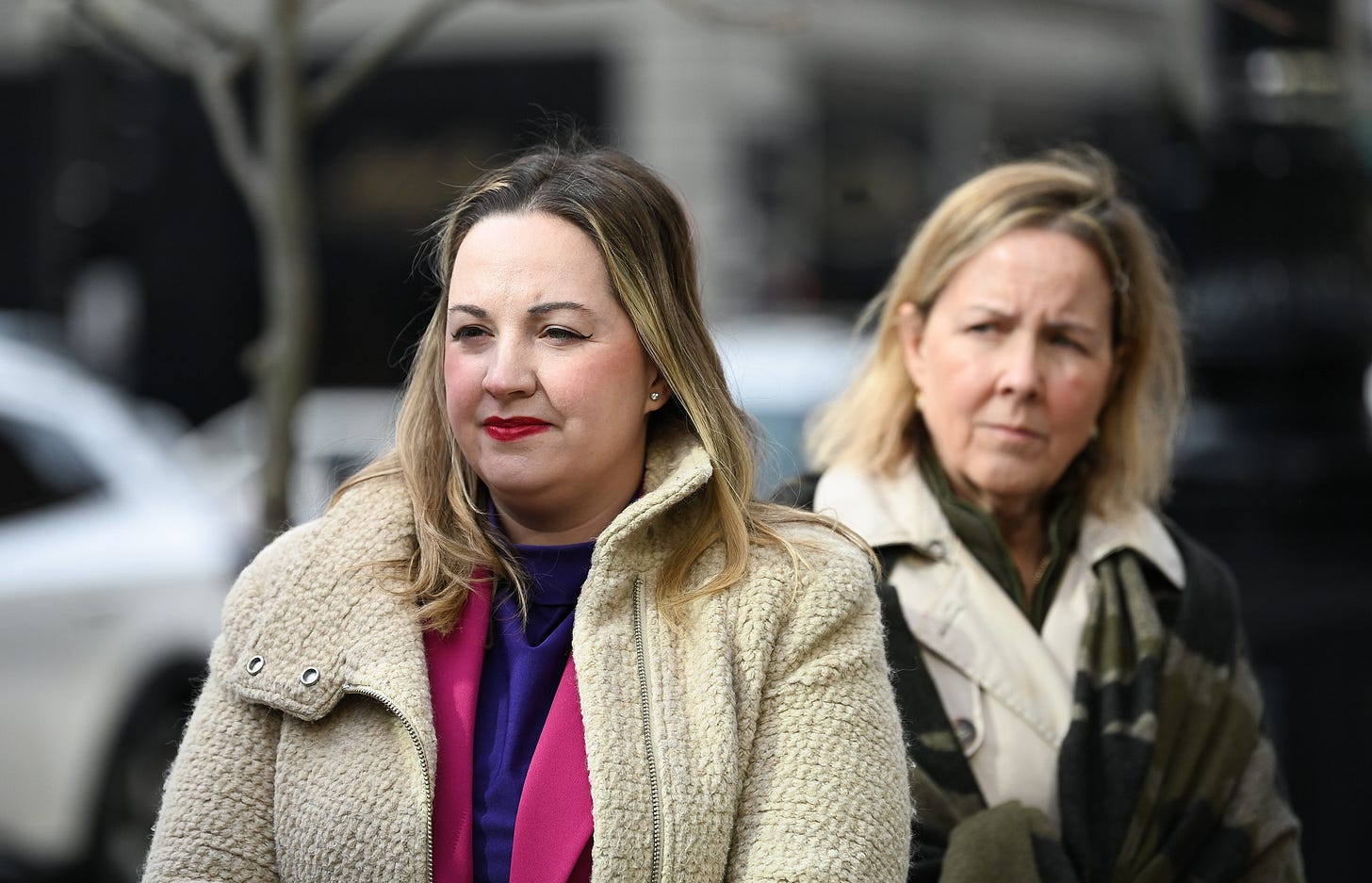Holding Delivery Giants Accountable for Safer Streets in Boston
Mayor Michelle Wu has introduced an ordinance that will hold delivery companies accountable. Now it's onto the Council for review!
For far too long, third-party delivery platforms have operated in Boston as if the rules don’t apply to them. Their business model prioritize speed and profit over safety and accountability, leaving residents, pedestrians, and even their own drivers to deal with the consequences of reckless and lawless behavior on our streets.
As Planning, Development and Transportation Chair, I chaired a hearing last year where I publicly asked these platforms to use the detailed delivery data that we know they collect to mitigate their impact on our streets. Unsurprisingly, they offered little to no transparency, and our request for them to self-regulate using such information was neglected. The administration’s ordinance today builds on that idea by requiring appropriate data reporting, making it impossible for these companies to continue hiding behind vague excuses and glib indifference.
Mayor Michelle Wu has introduced an ordinance that will require delivery companies like DoorDash, UberEats, and GrubHub to obtain permits to operate in Boston. This ordinance establishes a framework for accountability, ensuring that these large corporations do their part to keep our streets safe. By requiring companies to provide liability insurance for all their drivers, whether on cars, motorcycles, mopeds, or e-bikes, we are protecting not just pedestrians and drivers, but also the workers who rely on these platforms to make a living.
This new ordinance is a response to an alarming increase in unlawful and dangerous operation of motorcycles, mopeds, and motorized scooters by delivery service drivers in Boston. The City has made it clear that public safety is a priority, and this ordinance strengthens those efforts by ensuring enforcement is backed by clear regulations.
Right now, delivery companies are not required to hold insurance that protects uninsured or underinsured drivers. This means that when a crash happens, the financial burden often falls on individuals rather than the multibillion-dollar companies profiting from their labor. This ordinance corrects that injustice by mandating coverage for liability, personal injury, and collision, ensuring workers and residents alike are not left vulnerable.
Beyond insurance, this ordinance also tackles a growing public safety crisis: reckless and illegal driving on our city streets. By requiring delivery companies to share aggregate data on delivery routes and vehicle operations, we can better design roadway configurations, enhance enforcement efforts, and create targeted policies that protect everyone. No longer will these platforms be able to turn a blind eye to the congestion and safety hazards they create.
I’m thrilled to support Mayor Wu's common sense ordinance because Boston has no obligation to cater to multi-billion-dollar tech giants who refuse to play by the rules of the road. To those who might claim this proposal is too harsh on the delivery platforms, I invite them to spend an afternoon dodging mopeds in the Fenway or watching delivery drivers play chicken with pedestrians on Boylston Street. These reasonable permitting, insurance, and data-sharing requirements are a much-needed step toward the safer streets that we all deserve.
The ordinance aligns with the broader goals of Vision Zero, which aims to eliminate fatal and serious traffic crashes by 2030. The expansion of micromobility options, including e-bikes and scooters, has changed how residents and visitors navigate Boston. While micromobility offers greater accessibility and sustainability, it also creates new safety challenges. The Boston Transportation Department has taken significant steps, including new bike lanes, speed humps and safety initiatives, to ensure all road users can travel safely. However, without clear rules governing interactions between delivery services and other road users, we risk exacerbating traffic hazards rather than reducing them.
This is an opportunity to ensure that Boston’s transportation landscape prioritizes safety and accessibility. To our residents, small businesses, and delivery drivers—this ordinance is a win for all of us. It brings long-overdue accountability to a rapidly growing industry and ensures that corporate profits do not come at the expense of public safety. I am proud to support this measure and grateful to Mayor Wu for her leadership on this issue. I am looking forward to engaging with my Council colleagues about how this impacts all of our neighborhoods.
Boston’s streets must work for everyone. With this ordinance, we can get one step closer to making sure they do.
Sharon Durkan is the Councilor for District 8, and Chair of the Council’s Committee on Planning, Development and Transportation.






Good first step.
Look into limiting large 18 tracker Trailer trucks in Downtown Boston.
They should offer load deliveries to smaller 4 wheel trucks that can use the existing bike lanes. See other cities.
Here is good one for the delivery business. Get the BFD on board with allowing delivery drivers to park for <5 minutes at fire hydrants.